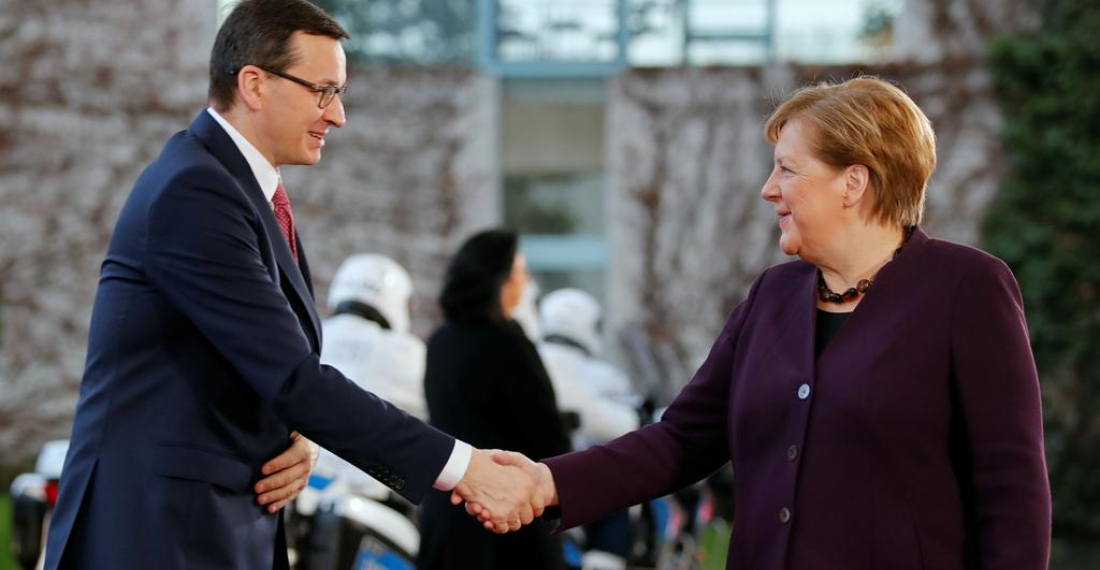The Chancellor of Germany, Angela Merkel, wants the long-running judicial dispute between Poland and the European Commission to be resolved by dialogue. The Commission and Poland disagree over reforms to the Polish rule of law.
The Commission wants Poland to abolish a Disciplinary Chamber for judges, as the Court of Justice of the European Union has already ordered. However, Poland believes that the EU has no authority over the national rule of law.
"On rule of law, we talked in depth about this.. We prefer this to be resolved through talks", Merkel said after a meeting with Polish Prime Minister, Mateusz Morawiecki, on Saturday (11 September). The German Chancellor believes talks between Poland and the European Union are already in progress. She stated that Germany is in support of dialogue.
"Resolving things with court cases is of course always a possibility in a country with a rule of law but politics is about more than going to court."
Last week, Brussels requested the Court of Justice of the European Union to impose "a daily penalty" on Poland if it does not dissolve the disputed Disciplinary Chamber.
The Polish Constitutional Tribunal is still examining whether the European Commission has anything to say about Poland's reforms of the rule of law. The Polish courts are constantly postponing that matter.







